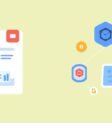
In today’s rapidly evolving business landscape, maintaining responsive communications with clients is no longer a luxury but a necessity for success. The effective use of AI agents for client follow-up is transforming the way companies manage their relationships, optimize workflows, and ultimately drive conversions. This article explores why timely follow-up matters, how AI agents are revolutionizing this domain, the implementation best practices, and real-world examples to illustrate the impact.
The High Cost of Delayed Client Follow-Up
In today’s fast-paced business environment, responding promptly to client inquiries is crucial for maintaining strong relationships and driving revenue growth. Manual follow-up methods—such as keeping spreadsheets, sifting through emails, or relying on memory—often result in delayed responses and missed opportunities. Clients expect quick acknowledgment and timely answers; when those expectations aren’t met, trust can erode, and clients may turn to competitors. Even short delays can lead to lost deals, damaged reputations, and diminished loyalty. As competition intensifies, businesses that fail to prioritize timely client follow-up risk falling behind, highlighting the need for efficient and consistent communication processes.
What Are AI Agents for Client Follow-Up?
AI agents for client follow-up are software programs that use artificial intelligence to automate and manage communication with clients after an initial interaction. Designed to handle routine, repetitive, or time-sensitive follow-up tasks, these agents free up human team members to focus on more complex work.
Their core function is to maintain ongoing engagement with clients, ensuring no inquiry or opportunity is missed. They can be programmed to send reminder emails, collect feedback, schedule appointments, answer frequently asked questions, and personalize responses based on client data.
AI agents come in several forms. Chatbots operate on websites or messaging platforms, providing instant answers and guiding clients through common queries. Intelligent email responders analyze incoming emails and craft context-aware replies, handle scheduling, or escalate messages that require human attention. Some systems integrate with CRM platforms, tracking the entire history of client interactions to deliver tailored follow-up actions at the right moment.
Advanced AI agents may even employ natural language processing to understand nuanced client communications and machine learning to improve their responses over time. Regardless of their form, the primary goal of AI agents in client follow-up is to streamline communication, boost responsiveness, and enhance the overall client experience.
Benefits of Automating Client Follow-Up with AI Agents
Automating client follow-ups with AI offers several significant advantages for businesses seeking to optimize client relations and improve outcomes. First, AI streamlines the follow-up process, dramatically increasing operational efficiency. Tasks that once required hours of manual effort can now be executed in minutes, reducing the margin for human error and freeing staff to focus on higher-value activities.
Second, AI enables personalization at scale. Advanced algorithms analyze past client interactions, preferences, and behavior to craft follow-up messages that resonate personally with each client. This degree of customization deepens client engagement and enhances the overall experience, making communications feel relevant and timely.
Finally, automated follow-ups contribute to higher client retention rates. Consistent and proactive outreach—delivered by AI at optimal times—keeps clients connected and informed, reducing the likelihood of missed opportunities or client attrition. Together, these benefits position AI-powered automation as a strategic tool for building stronger, longer-lasting client relationships.
How AI Agents Integrate into Modern Client Follow-Up Workflows
AI agents are increasingly integral to modern client follow-up processes, seamlessly integrating with existing workflows and CRM systems. Typically, these agents connect directly to CRM platforms such as Salesforce, HubSpot, or Zoho via APIs. Once integrated, they can access client data, track communication history, and automatically trigger follow-up actions based on specific events—like a new lead entry or a scheduled meeting.
For example, when a sales call concludes, the AI agent records notes from the conversation and sets up a follow-up reminder in the CRM. If a client opens an email or responds to a message, the agent updates the client’s status, nudging the sales team with tailored recommendations for next steps. Many AI agents also automate routine emails and messages, sending personalized follow-ups at optimal times to boost response rates.
In practice, this might mean that after a product demo, the AI agent drafts and sends a thank-you email, schedules a follow-up call based on the client’s preferred times, and updates the sales funnel accordingly. By automating these repetitive tasks and leveraging real-time data from CRM systems, AI agents enable teams to focus on higher-value activities while ensuring that no client slips through the cracks.
Best Practices for Implementing AI Agents for Client Follow-Up
Implementing AI agents effectively starts with clear goal-setting. Outline specific objectives for what your AI-powered follow-ups should achieve, such as improving response times, nurturing leads, or streamlining customer support. Select platforms and tools that align with your business needs, considering integration with existing systems and scalability for growth.
Customization is key for meaningful engagement. Train your AI agent with industry-specific data, including FAQs, product details, and previous correspondence, to ensure it communicates relevant information. Regularly update training materials to keep the AI knowledgeable and compliant with evolving best practices.
Balance automation with personal interaction to foster trust. Use AI agents for routine or repetitive queries, like appointment reminders or order confirmations, but provide easy escape routes to human support for complex issues. Personalize automated follow-ups by addressing users by name and referencing past interactions, reinforcing a sense of connection.
Continuously monitor your AI agent’s performance, using analytics to track response quality, customer satisfaction, and common drop-off points. Solicit user feedback and iterate frequently, adjusting workflow rules and scripts to refine both efficiency and empathy.
By establishing clear goals, customizing responses, and blending automation with personal engagement, businesses can implement AI agents that elevate customer experience without sacrificing the human touch. For additional insights on effective bot implementation, review our guide on building customer support bots.
Case Studies: Real-World Impact of AI Agents for Client Follow-Up
A leading e-commerce retailer implemented an AI-powered follow-up agent to engage with customers who abandoned their shopping carts. By personalizing reminder emails and recommending related products, the company saw a 23% increase in cart recovery rates and a measurable uplift in overall sales within three months.
In the B2B services sector, a software consultancy integrated AI agents to consistently follow up with leads after initial discovery calls. The agents provided timely, tailored messages, resulting in a 35% improvement in lead conversion rates and freeing human sales teams to focus on high-value opportunities.
A real estate agency adopted AI-driven follow-up tools to automatically check in with potential buyers and sellers. The agents could answer routine queries, schedule property viewings, and send custom content such as market updates. This automation led to a 40% increase in customer engagement metrics and a notable reduction in response times, ultimately boosting client satisfaction and repeat business.
These case studies illustrate how AI agents are not only streamlining the follow-up process but also delivering measurable business value through improved engagement, accelerated sales cycles, and enhanced customer relationships. For a deeper dive into the technology behind support automation, consult this relevant resource from Emerj.






